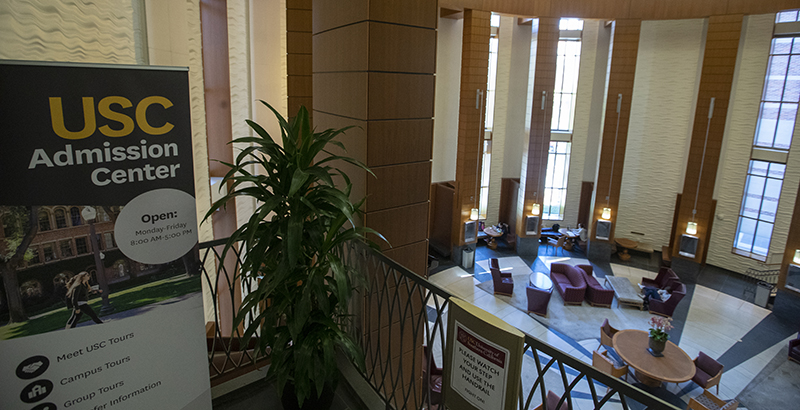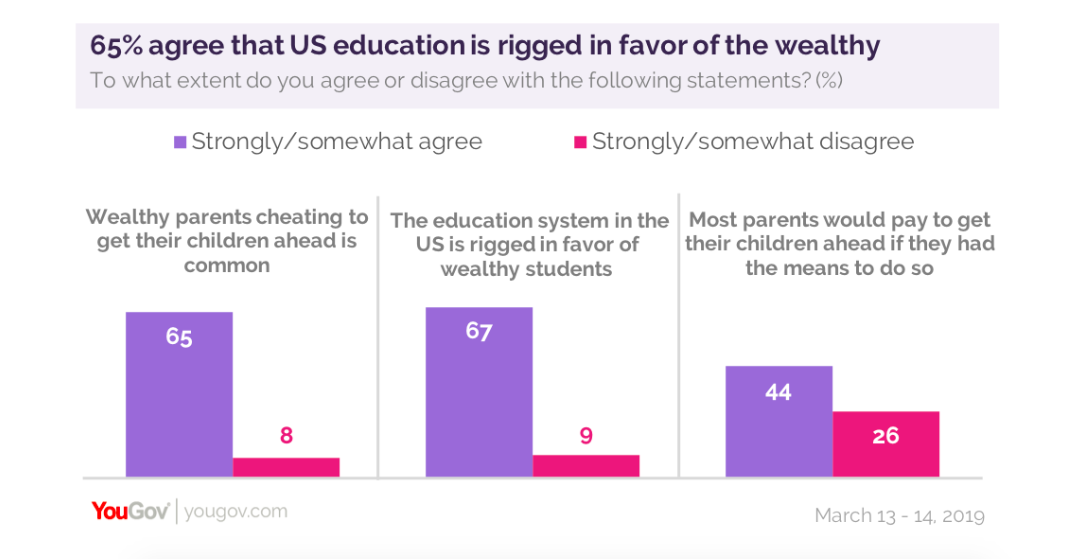1 in 4 Parents Would Pay Off College Admissions Officers If They Had the Money, New Poll Finds

If you had the money, would you bribe a college official to get your child admitted?
Fifteen percent of all American adults would answer yes, according to a new poll. And that number rises to 25 percent for adults who actually have children ages 18 and under.
It’s a hypothetical question, but certainly a revealing ethical one. There’s been a flood of outrage over the recent college admissions scandal, in which federal prosecutors charged parents with everything from paying off testing proctors to lying about their child’s athletic abilities to win a spot at elite schools. But a new poll from YouGov, a global public opinion and data company, shows that a large percentage of the U.S. population certainly doesn’t rule out the possibility of cheating and bribery when it comes to college admissions.
“It speaks to the pressure of parenting a bit,” said Larry Shannon-Missal, head of data services in the U.S. for YouGov. “Parents are aware of how increasingly competitive it is out there. They’re all reading the same articles we are about kids coming out of college and moving back in with their parents because it’s hard to find jobs that will pay enough to get a living wage.”
Even more parents — 34 percent — said they would be willing to pay someone to take an entrance exam on behalf of their child to get him or her into a good college. Of the general public, 20 percent said they would do so.
Shannon-Missal said these findings might also speak to a level of cynicism among the general population: that people see the wealthy using their resources to take advantage of the higher education system and would therefore be more likely to think that they themselves should also be able to do so, if they had the resources.
About two-thirds of adults polled said they were not surprised at the cheating scandal, and a similar number said the system is rigged in favor of wealthy students. In fact, 44 percent of adults said that, if given the money, most parents would pay to get their kids ahead.
Steering students toward specific extracurricular and academic tracks designed to catch the eye of admissions officers is not uncommon, and is available at sky-high prices. A recent New York Times profile of college consultants reported that costs for these services can reach into the millions of dollars. And rigorous, expensive test prep for entrance exams remains at the center of debates around equity and inclusion.

It’s worth noting that the majority of respondents said they would not cheat: About three-quarters said they would probably or definitely not pay off a high school or college official. But if they had the money, 72 percent said they would likely pay for tutoring or test prep to get their child into college.
While the two highest-profile participants accused in the scheme — celebrities Lori Loughlin and Felicity Huffman — are women, the survey found that more men than women were willing to cheat in the college admissions race. When it came to paying someone to take a college entrance exam for their child, 23 percent of men said they probably or definitely would, compared with 17 percent of women. And 19 percent of men said they would probably or definitely pay a college official to secure their child a spot, versus 12 percent of women.
Some survey questions asked whether the respondent would hypothetically cheat if given the resources, but when other questions inquired as to whether they have actually cheated to get themselves or their children ahead, very few said they had. Only 2 percent said they’ve paid someone to gain an advantage for their child. Only 10 percent admitted to having personally cheated on a pop quiz, and 5 percent said they’ve cheated on a final exam.
“There are a lot of things that people could see, under the right circumstances, being willing to go to an extreme [for], but that doesn’t mean that most people have found that set of circumstances that has driven them to do so,” Shannon-Missal said.
The survey is weighted and representative of U.S. adults. It was conducted online March 13 and 14 and included 1,259 respondents. The margin of error was 2.76 percentage points.
Get stories like these delivered straight to your inbox. Sign up for The 74 Newsletter

;)
